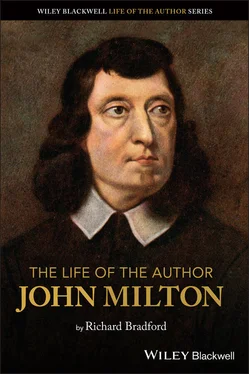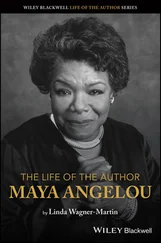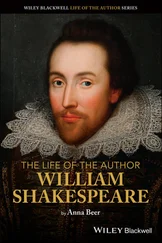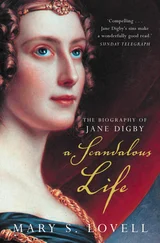At home poetry was treated as a necessary feature of the civilised household. His father, despite lacking a formal education, was an enthusiastic poet. He was a close friend of John Lane, an editor and publisher of verse and himself a writer, albeit of questionable competence. Milton senior set a number of psalms to music and contributed poems to several of Lane’s collections (see Parker, 1968, p. 16). Milton’s father’s verse reminds one of William McGonagall’s late-nineteenth-century combination of disarming sincerity and embarrassing ineptitude. Milton’s opinions upon his father’s poems are a matter for speculation but one is tempted to wonder if they encouraged an early regard for stylistic probity. Milton himself certainly wrote verse during this period. Undated epigrams on the Gunpowder Plot survive, along with exercises in Latin elegiac verse, but they might have been produced by anyone; Milton the poet would not find his individual voice, at least in English, until he was in his twenties.
Milton, just sixteen, arrived in Christ’s College, Cambridge on 12 February 1625 and he matriculated on 9 April (Figure 2.1). It is more than likely that Milton was conveyed between Cambridge and London by Thames Hobson who made the journey with his own carriage once a week and rented horses or drawn carriages to students when they required more urgent transportation. Milton certainly remembered him. Shortly after Hobson’s death in 1631 he wrote a poem called ‘On the University Carrier’. It is a mock-heroic piece which does not exactly satirise Hobson but it treats him more as a subject for amused curiosity than with respect.
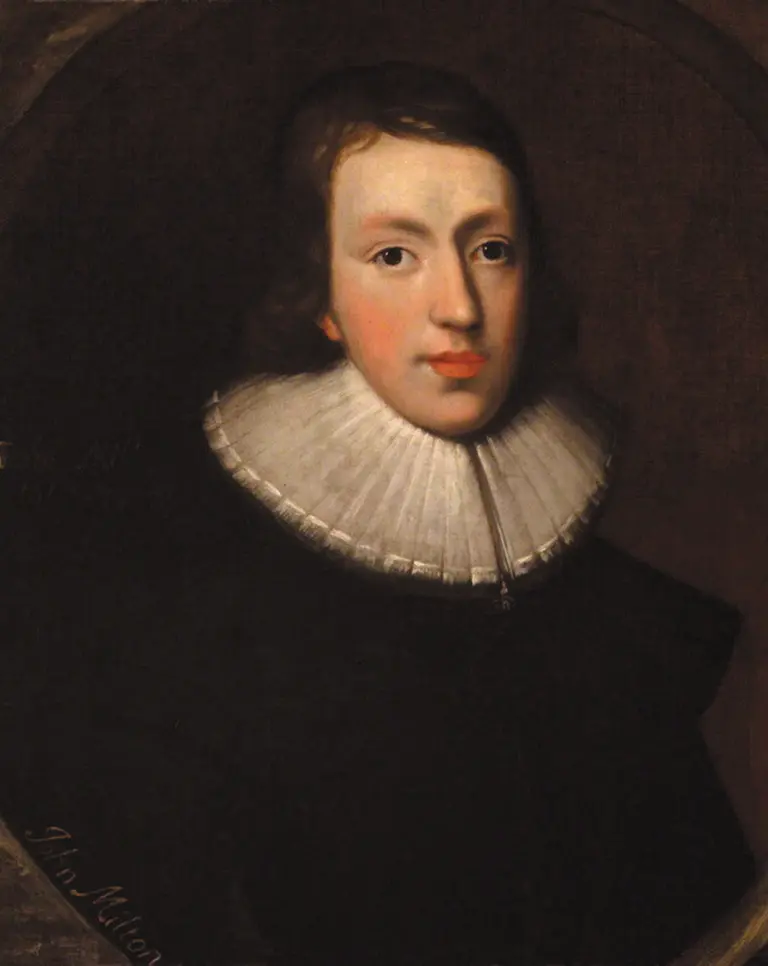
Figure 2.1 Milton at Cambridge, c. 1629. Source : National Portrait Gallery.
Merely to drive the time away he sickened,Fainted, and died, nor would with ale be quickened,Nay, quoth he, on his swooning be outstretched,If I may not carry, sure I’ll ne’er be fetched .
(16–18)
We tend to date the quintessentially English tendency toward class consciousness and snobbery to the nineteenth century but Milton’s patronising tribute to Hobson causes us to question that. Perhaps Milton’s time at Christ’s encouraged a feeling of superiority. The college itself was not the grandest in Cambridge – Trinity and King’s paraded their wealth and eminence with ostentatiously expensive buildings – but it carried an air of the modest country house. Its buildings were distributed across what were once open fields which had by Milton’s arrival become mature, planned gardens, now known as Christ’s Piece. The gardens also included an orchard and an enclosed tennis court, and to the West of the college its members could walk along the banks of the Cam. Its buildings were shared, on average, by 250 students and more than 20 fellows all of whom lodged in generously spaced rooms in the two-storey quadrangles. The day at Christ’s began at five with morning service in the college chapel. Breakfast would follow in Hall between six and seven and the rest of the morning involved disputations between students and their tutors, the origin of the modern-day tutorial, and lectures either in the Public Schools or in college. Dinner, the main meal of the day, was taken at noon and during the afternoon students, unless required for specific disputations, were left largely to themselves. Recreation during these hours took the form of games of tennis, fencing, bathing in the Cam or wrestling. Some, if from wealthy enough backgrounds, would stable horses in the town and ride during their spare time. Regulations stated that undergraduates must be accompanied by dons when they ventured beyond the gates of the college but few if any had the time or inclination to observe this rule. We cannot be certain of how Milton occupied his free hours but he later insisted that he was an adept swordsman so it is possible that he acquired this skill at Cambridge. ‘When he was Young’ claims Richardson, ‘he learnt to Fence, probably as a Gentlemanly Accomplishment, and that he might be Able to do Himself Right in Case of an Affront’ (Darbishire, 1932, p. 204). Just as likely, the vast acres of open land surrounding the colleges encouraged his enduring love of walking in the countryside. After vespers, supper would be taken at seven and unless they had a special dispensation no one was allowed out of college after nine o’clock.
His friend Diodati had gone up to Oxford two years earlier and it is likely that the Miltons chose Cambridge because of its reputation as generally more sympathetic to the cause of radical Protestantism. University dons were mostly clergymen, but if Milton had expected to join a community which addressed itself to the theological and political controversies of the day he was to be very disappointed. His Cambridge experiences, of which in any event there are few reliable records, can best be described as dull. He made no close friends there; the curriculum, unchanged for several hundred years, involved the standard retinue of rhetoric, logic and ethics, with a smattering of Greek and mathematics (Latin was the language of instruction). Speculation and open argument during disputations were frowned upon, and inculcation preferred. If the move from school to university involved the expectation of a shift from regimentation to intellectual challenge, this for Milton seemed to have gone into reverse. St Paul’s had offered a far more stimulating, unorthodox environment than his new home.
Christ’s might have conformed to the educational regime of the rest of the university but another aspect of its milieu contributed to the one notable occurrence during Milton’s time there as a student, his temporary expulsion from the university in the Spring Term of 1626. Most of the fellows and students were advocates of various aspects of Calvinism and Puritanism and by the time Milton arrived Christ’s, along with Emmanuel and Sidney Sussex, was becoming an outpost of resistance against the High Anglicanism that had taken root in much of the rest of the university. Milton’s younger brother Christopher would many years later tell of how John had, after disagreements with his tutor William Chappell, ‘received some unkindness’. Speculative biographers subsequently assumed that this had meant that he had been ‘sent down’ from the university as a punishment for insubordination and such assumptions are based upon a poem in Latin by Milton himself called ‘Elegia prima ad Carlolum Diodati’ (‘Elegy I to Charles Diodati’) which is a versified letter to his friend – they corresponded regularly and always in Latin – which includes references to his college rooms as ‘forbidden’, and to his ‘exile’ and ‘banishment’.
Whatever the exact nature of the event – and Christopher also refers to Chappell as having ‘whip’t him [contrary to] ye Rules of ye College’ – what is known is that Chappell had a reputation as a formidable intellectual disciplinarian and unyielding debater, having once reduced James I to virtual silence during a University Assembly. He was also an intractable Arminianist, unwilling even to countenance the possibility of any other theological principle. As has been made clear, Milton too would come to champion the Arminianist emphasis upon freewill and the power of conscience but it is likely that he took against a man who exemplified theological totalitarianism, even if he shared his interpretation of Scripture. The fact that on his return Milton was assigned a different tutor, Nathaniel Tovey, reinforces the suspicions of a temperamental antipathy between him and Chappell, as does the poem to Diodati on his ‘exile’ to London. ‘I am not pining away for any rooms … I do not like having always to stomach the threats of a stern tutor and other things which my spirit will not tolerate’ (II, 12–16 translated from the original Latin into English prose). Aside from the poem, we cannot be certain of what exactly Milton did during his time away from the university, yet so rhapsodic is his portrayal of what amounts to his first period of independence that one begins to wonder about its authenticity. He speaks of ‘how badly that place [Cambridge] suits the worshippers of Phoebus!’ and tells of his days walking in the countryside just beyond the city, of his new-found enjoyment of the theatre, of the vibrancy of the streets, and writes almost in wonder at the visions of womanhood abroad in the metropolis, as if he had encountered real members of the opposite sex for the first time. Does he protest too much? The fact that the poem is in Latin might seem of no great significance since it would have been standard for Milton and Diodati to advertise their mutual respect as able practitioners of the language and its poetic conventions but it seems not accidental that it was also a suitable vehicle for his presentation of experiences that might have been borrowed from any number of Classical poems celebrating the joys of bucolic, social and literary life. And, despite numerous attempts during the Renaissance to reconcile Classical culture and learning with Christianity, the former remained doggedly pre-Christian. Perhaps Milton was creating for himself, and Diodati, a fantasy world in which the pressures and conflicts of Cambridge, which exemplified those of England as a whole, might be suspended.
Читать дальше
